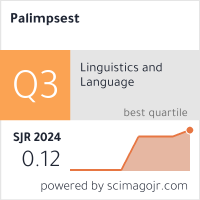AI-DRIVEN COMMUNICATION: THE ROLE OF ARTIFICIAL INTELLIGENCE IN SHAPING CONSUMERISM AND SOCIAL CONTROL IN BRAVE NEW WORLD AND NINETEEN EIGHTY-FOUR
DOI:
https://doi.org/10.46763/PALIM251019103dAbstract
This paper examines the dystopian visions of Aldous Huxley in Brave New World and George Orwell in Nineteen Eighty-Four, focusing on the role of artificial intelligence (AI) within the communication systems of these novels. Both Huxley and Orwell, writing in the early to mid-20th century, predicted the influence of media technologies on shaping modern consumer culture. Huxley’s depiction of AI-driven advertisements and Orwell’s portrayal of AI-powered surveillance highlight the potential dangers of mass media in manipulating thought and behaviour. Through these technologies, both novels present a world where communication systems foster a seemingly utopian, consumer-driven reality. This paper argues that AI and media technologies are not passive tools but active forces that manipulate populations and sustain capitalist ideologies: (1) Technology as Social Control: Advancements in AI and media technologies are used as tools for social control, pacifying populations and limiting critical thought; (2) Media and AI Reinforcing Commodification: These technologies create a consumer-driven society that reinforces capitalist dominance by commodifying human attention and interactions; (3) Digital Inequality and Social Stratification: The rise of digital communication technologies deepens social inequalities, dividing society into the “connected” and “disconnected”.
Keywords: Artificial Intelligence (AI); Media technologies; Surveillance; AI-powered communication; Media influence.
Downloads
Downloads
Published
Issue
Section
License
The intellectual property and copyright on the original content of all scientific contributions in the published paper shall remain with the authors. Authors give permission to the JAPS owner to publish the paper. All authors agree to publish the paper under Attribution-NonCommercial-NoDerivatives 4.0 International license (CC BY-NC-ND 4.0)


